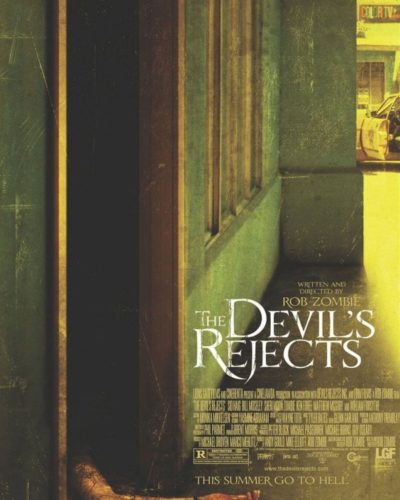A Descent into Madness: An Examination of “Queen of Earth”
“In the end, it’s all a game, isn’t it?” This poignant line from Alex Ross Perry’s 2015 film *Queen of Earth* encapsulates the psychological tension and emotional chaos that permeates the movie. Directed by Perry, the film unravels the troubled psyche of its protagonist, Catherine (Elizabeth Moss), as she retreats to her family’s lake house following a tumultuous breakup and the death of her father. Armed with a hauntingly disorienting atmosphere and a chilling exploration of mental instability, *Queen of Earth* is a harrowing delve into the intersection of personal trauma and psychological horror.
Crafting a Dreadful Atmosphere
*Queen of Earth* achieves its horror atmosphere primarily through an unsettling blend of suspense and an overwhelming sense of foreboding. As the narrative unfolds, we watch Catherine spiral deeper into her despair, propelled by a palpable dread that lurks in every corner of the lake house. The film masterfully creates an environment where isolation is suffocating and even mundane actions can feel ominous. This ambience is exacerbated by darkly comedic undertones that unsettle rather than comfort, leaving the audience in a state of discomfort.
The use of claustrophobic framing during various scenes fosters an overwhelming sense of entrapment, heightening the viewer’s unease. The circular structure of the narrative, which sees Catherine’s state of mind deteriorate, serves to amplify the inherent horror of losing one’s grip on reality. This persistent sense of anxiety compels viewers to experience Catherine’s internal struggle alongside her, prompting questions about her reliability as a narrator and the truth surrounding her descent into madness.
Visual Techniques That Haunt
The cinematography in *Queen of Earth* is a standout element that contributes audibly and visually to the film’s horror aesthetic. Shot on grainy 16mm film, the visual style evokes a sense of nostalgia while simultaneously enhancing the discomfort of the unfolding drama. The muted color palette—dominated by browns and greens—mirrors the decaying mental state of the protagonist and creates a stifling atmosphere, reminiscent of faded summer days that evoke memories twisted by trauma.
Lighting plays a crucial role in building the film’s tension. Shadows stretch and distort familiar spaces, transforming the lake house into a labyrinth where memories taunt Catherine. Critical camera angles, which sometimes keep the audience restricted to Catherine’s point of view, amplify the tension. There are instances where the focus shifts away from her, providing a fleeting glimpse into her environment, suggesting a lurking menace that weighs heavily upon her psyche. These techniques showcase Perry’s artistic vision and skillful understanding of the horror genre’s visual language.
The Echoes of Dread: Sound Design
Sound plays an essential role in enhancing the horror elements in *Queen of Earth*. The film’s sound design is potent, with eerie silence punctuating moments of dread, allowing the viewer to feel the weight of unsaid words and unseen threats. The faint rustling of leaves, distant echoes, and an unsettling score contribute to a general sense of impending doom, drawing spectators into Catherine’s world and her unraveling mental health.
The soundtrack features a piercing, haunting score that complements the film’s overarching themes of despair and confusion. Notably, there are moments when the score drops out entirely, leaving only the ambient sounds of nature. This choice starkly contrasts the previous soundscapes, plunging viewers into a disquieting silence that mirrors Catherine’s isolation and inner turmoil. These carefully crafted soundscapes and haunting melodies submerge the audience into the psychological horror, emphasizing the fragility of Catherine’s mind while evoking an almost palpable tension.
Performances that Haunt
Elizabeth Moss’s performance as Catherine is a masterclass in emotional depth and complexity, effectively capturing the raw vulnerability and escalating instability of her character. With each passing scene, Moss beautifully balances moments of clarity and hysteria, reflecting her character’s breakdown through natural yet harrowing reactions to her plight. The chemistry between her and co-star Katherine Waterston, who plays her friend, is fraught with tension and adds another layer of complexity to the narrative.
Moss’s portrayal is layered and nuanced, making Catherine’s mental deterioration both painful and fascinating to observe. The audience bears witness to her unraveling through a series of emotional outbursts and quiet desperation, as the film explores her relationships—particularly with her ex-boyfriend—unraveling the threads of her reality. The supporting cast provides credible performances, but it is Moss’s tour-de-force delivery that carries the emotional weight of the film, fully immersing the viewers in her harrowing journey.
Psycho-Emotional Horror: Genre Mechanics
*Queen of Earth* straddles the line between psychological horror and drama, effectively utilizing elements from both genres. The film delves into the psychological struggles of its main character, challenging conventions typically associated with horror. It explores the horror of a disintegrating mind rather than relying on supernatural elements or overt gore, making it an astute commentary on emotional fragility in a terrifying world.
The film employs psychological horror mechanics by illustrating how the fear of losing one’s mind can be more harrowing than any external confrontation. From erratic episodes to dubious hallucinations, Catherine’s reality is manipulated by her trauma, and the boundaries of sanity blur. Perry cleverly forces the audience to question the sources of Catherine’s torment, whether they are internal manifestations or external influences, compelling viewers to grapple with the unsettling notion that our mind can be our worst enemy.
Deep Themes and Dark Commentary
Throughout *Queen of Earth*, the exploration of themes such as betrayal, mental health, and the complexities of friendship stands out. The film probes how personal trauma intertwines with one’s identity, raising questions about the impact of relationships and the struggles of coping with loss. Perry uses Catherine’s unraveling as a lens to examine how intense emotions can warp perceptions, ultimately leading individuals down destructive paths.
The film resonates with a broader societal commentary on mental health, particularly the stigma it carries. By illuminating Catherine’s isolation and despair, Perry critiques society’s failure to address the complexities surrounding emotional health—absent support and understanding often lead to tragedy. The film deftly weaves its horror elements into these themes, providing an impactful viewing experience that leaves audiences contemplating not just the plot, but their own interpretations of sanity and support in times of crisis.
A Disturbing Masterpiece: Conclusion
Overall, *Queen of Earth* is a haunting exploration of a mind unraveling, offering a chilling yet thought-provoking glimpse into a character lost within her psychological struggles. Through expert direction, compelling performances—particularly by Moss—the film evokes genuine fear not from what lurks outside, but from what resides within. It presents a nuanced take on psychological horror, allowing the audience to confront the disquieting aspects of mental health.
This film is likely to appeal to horror aficionados and viewers who appreciate character-driven narratives emphasizing psychological tension. Those seeking jump scares or visceral gore might find this film less satisfying, as its horror is woven through the intricacies of emotion and trauma rather than overt shocks.
In comparison to classics like *Repulsion* and contemporary works such as *The Babadook*, *Queen of Earth* stands as a commendable entry into the psychological horror genre, offering a unique perspective that is both unsettling and unforgettable.
Viewer discretion is advised, as the film contains themes related to mental health crises and emotional distress that could be triggering to some audiences. In summary, *Queen of Earth* triumphs as a disturbing portrait of despair, securing its place within the horror genre as a compelling examination of the human psyche.




